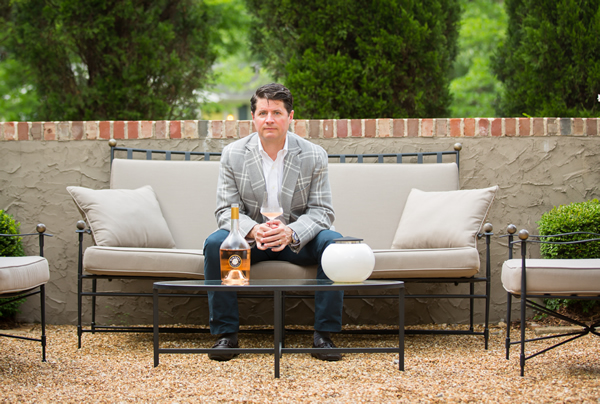Greg Doody 94L: From boardroom to vineyard

In September, Doody spoke in the law school's DealTalk Series, discussing, "How I Went From To Executive Suite and Became a Certified Wine Sommelier Along the Way." Photo credit: Phuc Dao
The Wall Street Journal article on Charter Communications' filing for Chapter 11 bankruptcy protection, which ran on March 28, 2009, was small but had a photo accompanying it: a close-up of the chief restructuring officer, Gregory Doody 94L. Doody, a CPA and corporate lawyer, had proven himself the go-to guy for such intensive restructurings, and the St. Louis–based cable operator needed to reduce its debt by about $8 billion. Flash forward six years. Doody, now a certified sommelier and executive vice president and chief operating officer for Vineyard Brands, is touring family vineyards around the world — in such places as the South Island of New Zealand (the Middle-earth vista from The Lord of the Rings movies) and the western cape of South Africa, with baboons cavorting about. The path from boardroom to vineyard was serendipitous, says Doody, and it makes for a good tale.
The corporate-restructuring portion of his career — pulling companies back from the brink — began in the early 2000s, after a cluster of huge accounting scandals at companies such as Enron, WorldCom, and Tyco. These high-profile financial scandals resulted in the Sarbanes-Oxley Act of 2002, intended to protect shareholders and the general public from accounting errors and fraudulent practices and improve the accuracy of corporate disclosures. It also resulted in tighter scrutiny of large, publicly held companies with "creative" bookkeeping.
In fall 2002, Doody, an attorney at the Birmingham firm Balch & Bingham, was called in to advise independent directors of HealthSouth, the largest publicly traded rehabilitative healthcare company in the US. HealthSouth had come to the attention of the SEC for accounting, disclosure, and trading irregularities, and in March 2003 the FBI raided its corporate headquarters.
"They wanted someone local to advise them," he says. The interim CEO asked Doody to become the company’s general counsel, but Doody liked Balch &Bingham and wanted to stay with his firm. He agreed, however, to help HealthSouth clean things up. "The company had something like 50,000 employees, all worried that it was going to go out of business," he says. "Because of the fraud, you couldn't trust the books. We didn’t knowhow much money the company had or where it was." Seventeen people ended up pleading guilty, including most of senior management.
Cooperating with seven US attorneys' offices, the FBI, the IRS, the SEC, and the Department of Justice, Doody and the team hunkered down. "We were trying to reconstruct the accounting records, put the financial statements back together, get the SEC filings done," he says. "The company paid $600 million for all of that, not including any of the settlements. There were class-action suits and state fraud actions. It was really exhausting, but we did it."
The company survived, and Doody was asked to stay on as executive VP, general counsel, and corporate secretary. "We settled with everyone," he says. "It seems impossible, but you just keep slogging through day by day. Someone compared it to flying a plane with no engines and blackened windows."